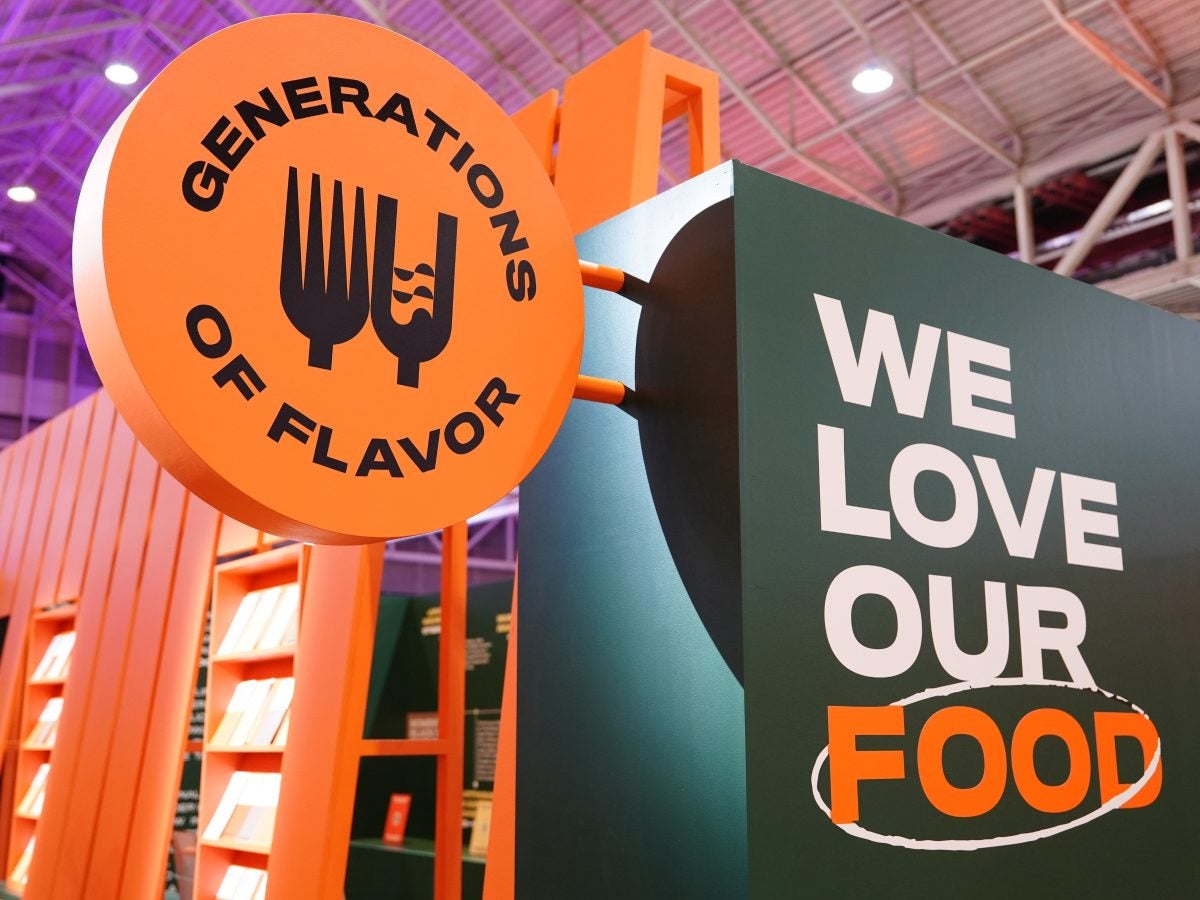
African culture is everywhere.
The music is hotter than ever before thanks to Afrobeats and Amapiano. The style and fashion influence can be seen far and wide. And movies from places like Nigeria and South Africa, known for their film industries, are all over Netflix.
But probably one of the most coveted aspects of the culture is the delicious fare. Aside from the comical jollof wars, food from the continent truly is making waves in the mainstream, including within the fine dining scene. So it made sense for us to gather some of the biggest names in both New Orleans and in the U.S. at large, making popular food from African countries, for a conversation at the Food and Wine activation at the 2024 ESSENCE Festival of Culture. They included Chef Eros, behind LA’s Nigerian restaurant Ilé, Prince Lobo of Addis Nola, bringing Ethiopian food to The Big Easy, and Serigne Mbaye, the recent winner of the 2024 James Beard Award for Best New Restaurant for his NOLA hotspot, Dakar NOLA.
For Mbaye, who grew up in Harlem, he’d seen Senegalese food bring people together, but he wanted to see it elevated in the industry. “Early on, when I moved to New Orleans, I didn’t see African food at the fine dining level, and that was my motivation for everything,” he said. “Throughout the past 15 years of being in the industry, I knew that our people belong. In order for me to show that, I had to work in some of the top restaurants just to get the experience. That allowed me to get the knowledge, get the respect, and understand the business.” Dakar NOLA has been open 18 months and is already an award-winning establishment.
“As a kid growing up in New York and Harlem, I was born into the hospitality industry,” he said. I found myself spending a lot of time with my mom and being in the kitchen. So by me being in the kitchen with my mom, I learned more about her, about life, about food, and that was my inspiration to continue living the life I’m living now, which is being a chef.”
Chef Eros, who’d opened successful restaurants and a catering business in Lagos, Nigeria, decided to make the leap Stateside and open his space, Ilé, in Los Angeles, of all places.
“You know Nigerians now. We’re bold. Go big or go home,” he said. “For me, my ethos has always been putting West African food on the global map and, most importantly, making it respectable. As a Nigerian, we’ve been misunderstood for the most part, and for me, as a proud Nigerian, I wanted the pride of my culture to come through, especially in the cuisine.”
“I’m a culinary entertainer because I use food as a medium of communication to tell the stories of my people or my culture and to make not just myself proud, but everyone that is around me proud to connect the dots,” Eros added. “And so coming to Los Angeles was me basically saying, I’m going to go to the capital of entertainment to reach a very white audience.”
He’s been successful in his efforts, as Ilé is a popular spot in LA, and he was most recently featured in a commercial for Chase Bank with Michael B. Jordan and other food faves centering jollof rice.
“We presented the unity jollof rice that tells the story of the combination of all of us because together we are stronger, we’re stronger together as one. And that’s why we preach the story and the ethos of one people and one jollof. That commercial has become a trend, and it’s on a global stage, even so much so that it was presented at Cannes as well,” he said. “And so for me, going to Los Angeles and being there and being able to put West African culture on the food map and sitting next to brothers like this who are doing the same thing makes me proud from my chest. I can beat my chest and say I’m African. I’m African as f–k and I’m proud.”
And for Prince Lobo, his choice to bring Ethiopian food to the masses came from a desire to celebrate both his culture, and his mother.
“One day she literally came to me, she said, ‘I have a dream. I want to present Ethiopian food in New Orleans. I see African culture everywhere I go, I see the clothes, I see the food, but it does not exist in the way that I envision it,’” he recalled. “That was that drive, that passion, that love that I was raised with.”
He added, “It was just me and her. I came to the States when I was two years old. I was sick when I was a baby. I was born in Angola, but my mother, being Ethiopian, she left when she was 13. So in her heart she kept these cultures, she remembered these dishes, these recipes. And anytime she cooked, anytime she had a chance to cook, I would be right by her side. So whenever she came to me and told me this dream, this vision, I said, you know what? She gave up everything just for that to happen at a young age, just for me to be able to achieve all of my dreams. You left so I could have a chance to be able to do what I wanted. And I thought it would be a wasted opportunity if I didn’t join in on that venture with her. And so it really is just to showcase the love for the culture, the passion of people.”
All three men are proud to prepare the food they grew up with for foodies who are embracing African flavor around the country. And all three men say it was there mothers (and grandmothers and aunts too) who made it possible for them to do so. These women all taught them how to cook or help bring to life the meals they love that can now be found at Addis Nola, Ilé Bistro, and Dakar NOLA. And they’re grateful to see more and more people like them opening spaces that put African food on the map.
“As more and more artists come into the space and take those ingredients and processes without losing the authenticity of it, being respected in regards to what the ingredients are, and gradually find ways to make them more presentable, to make them more appreciated, to make them more palatable, it becomes now celebrated,” says Chef Eros. “And that’s what’s happening with more and more chefs coming in and cooking West African food. With that flair, with that avantgarde approach, it becomes more celebrated. As my brothers here said, it’s Africa to the world.”



